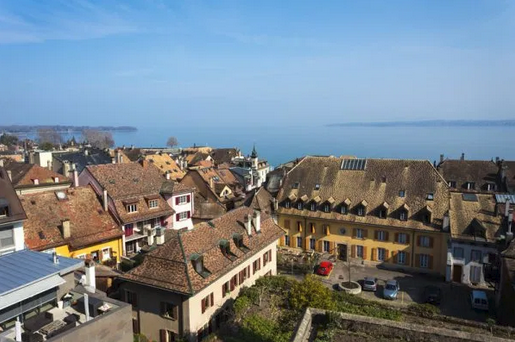In 1999, Switzerland signed a deal with the EU allowing free movement of people between Switzerland and the bloc. The deal came into force in 2002. This led to a rise in immigration into Switzerland, which in turn eventually led to rising rents. © Andreaciox | Dreamstime.com However, since 2014 there has been a marked slowdown in EU immigration into Switzerland. In addition, a lot of rental homes have been built. The overall supply of rental properties now exceeds demand. A report published this week by the Federal Office of Housing shows the effect the immigration slowdown has had on rents between 2014 and 2019. The downward pressure on rent is partly explained by the higher percentage of foreigners renting compared to Swiss. In 2019, 87% of foreigners were
Topics:
Investec considers the following as important: 3.) Personal Finance, 3) Swiss Markets and News, Editor's Choice, Featured, newsletter, Personal finance, Property, Property prices Switzerland, Real estate prices Switzerland, Rent in Switzerland
This could be interesting, too:
Investec writes The global brands artificially inflating their prices on Swiss versions of their websites
Investec writes Swiss car insurance premiums going up in 2025
Investec writes The Swiss houses that must be demolished
Investec writes Swiss rent cuts possible following fall in reference rate
In 1999, Switzerland signed a deal with the EU allowing free movement of people between Switzerland and the bloc. The deal came into force in 2002. This led to a rise in immigration into Switzerland, which in turn eventually led to rising rents.
However, since 2014 there has been a marked slowdown in EU immigration into Switzerland. In addition, a lot of rental homes have been built. The overall supply of rental properties now exceeds demand.
A report published this week by the Federal Office of Housing shows the effect the immigration slowdown has had on rents between 2014 and 2019.
The downward pressure on rent is partly explained by the higher percentage of foreigners renting compared to Swiss. In 2019, 87% of foreigners were renting compared to 56% of Swiss.
Between 2014 and 2019, Swiss home rents declined by 1.6% on average. In the lake Geneva region they fell by an average of 4.2%. In Ticino they fell 6.9%. Even Zurich, where the market is typically tight, average rent fell 1.1%. The only place where rents rose over this period was the Mittelland region (+1.0%).
However, declining immigration has not negatively hit Swiss home prices. Over the four years to 2019, average Swiss home prices rose 8.6%, around 2.1% a year. Property price rises varied by region. Across the Lake Geneva region they rose by 5.4%. Zurich (12.1%) and the Mittelland region (9.0%) saw higher rises. Ticino, was the only region where house prices were down (-1.5%.).
More on this:
Federal Office of Housing report (in French) – Take a 5 minute French test now
Tags: Editor's Choice,Featured,newsletter,Personal finance,Property,Property prices Switzerland,Real estate prices Switzerland,Rent in Switzerland









